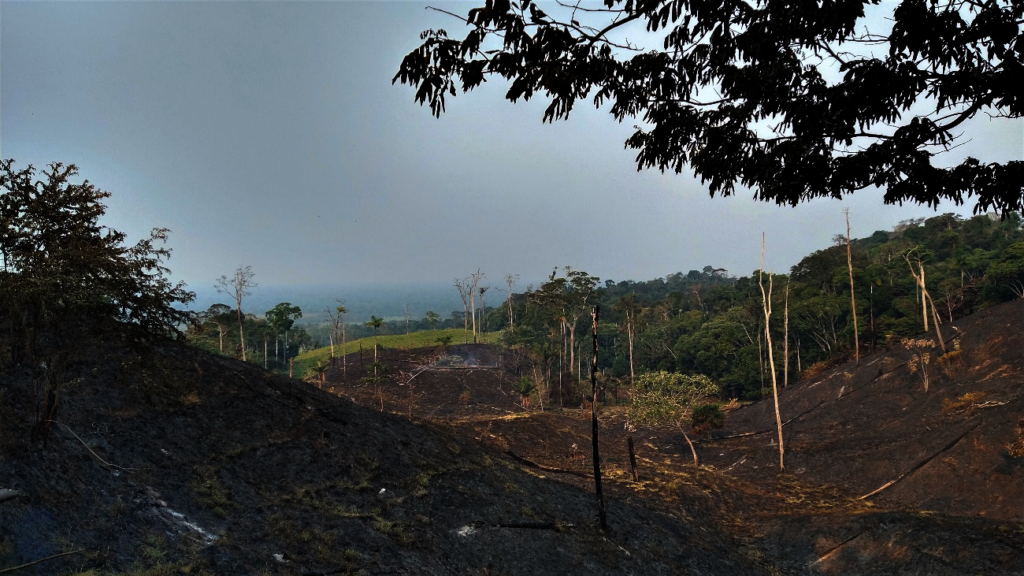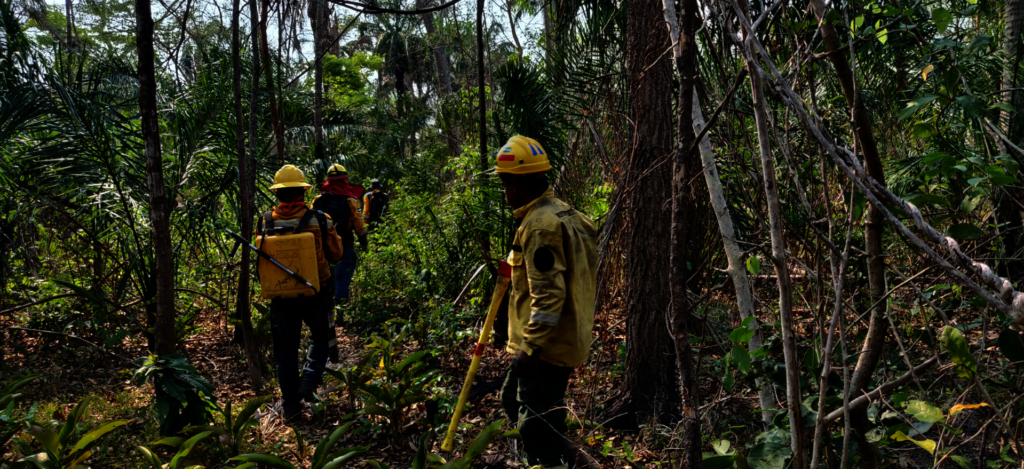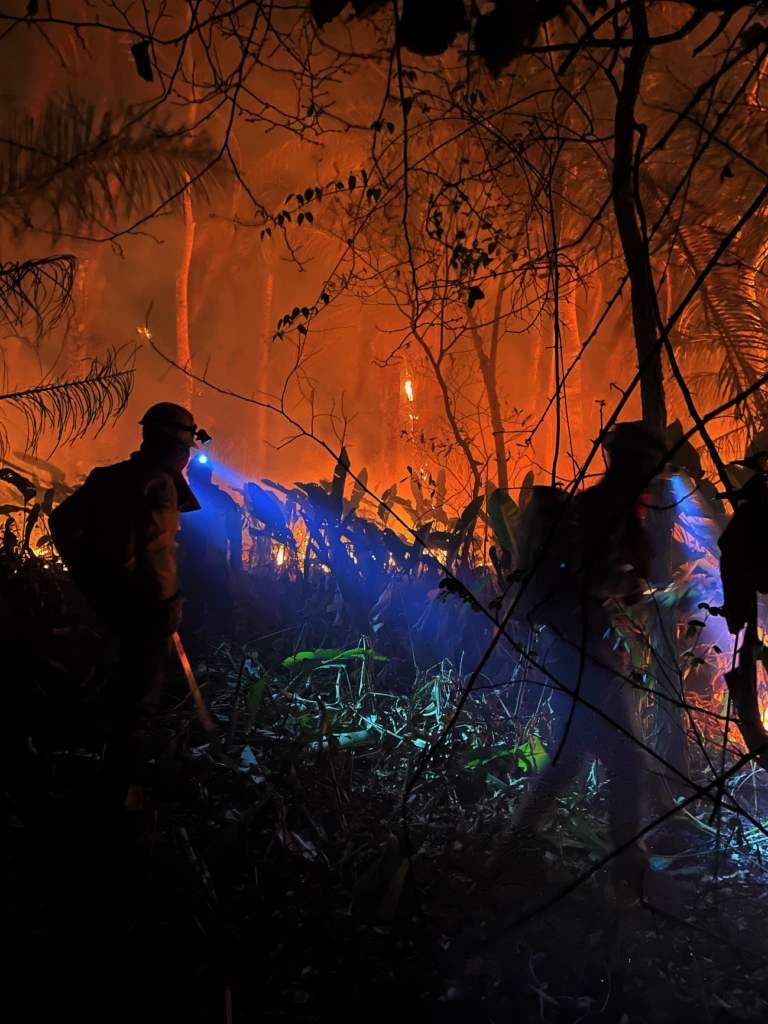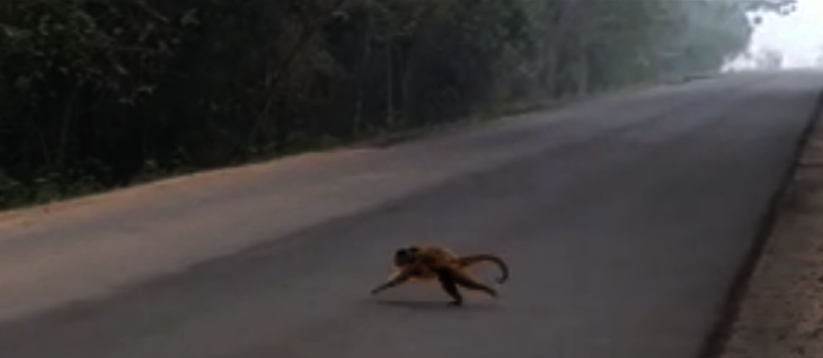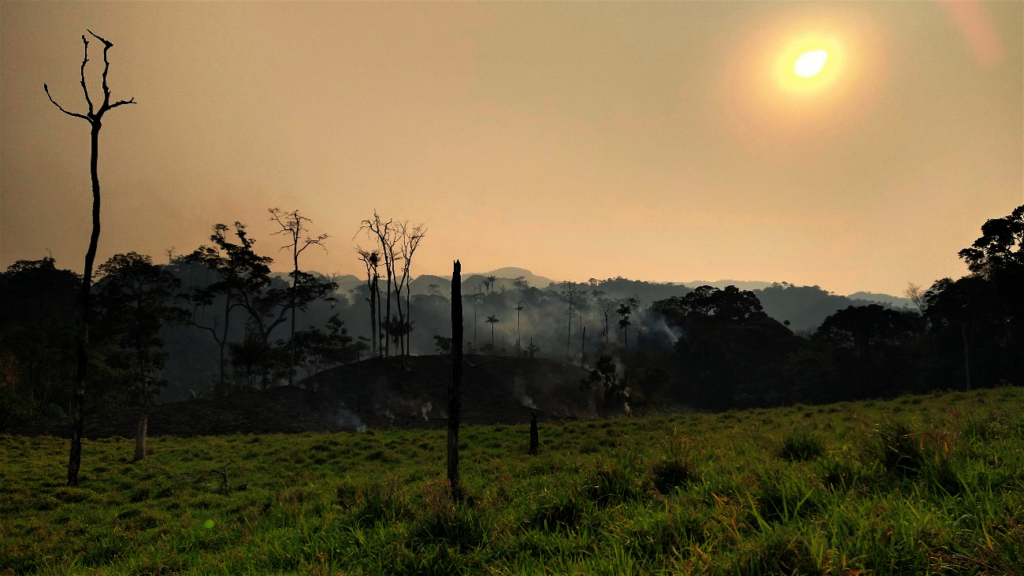By Jenny Boyd | FIWY Development Director
Dear Supporters,
CIWY has survived another fire season, thanks largely to donors like YOU.
Sadly, this year saw fires encroach on Jacj Cuisi as well as Ambue Ari. Jacj Cuisi has always been safely outside of the danger zone during the Amazon fires, but it appears that is no longer the case.
In September an agricultural burn near JC got out of control and there were at least 5 sources of heat threatening the sanctuary.
Fortunately, we had the help of Oso, who has experience in fires, and the Jacj Cuisi team, plus the efforts of some of the Machìa team who were at JC due to the recent movement of the coatis and the tayra. They were joined by personnel from the Madidi National Park, others from the Management and Risk Unit of the Municipality of San Buenaventura (UGR) and soldiers from the Army. We were able to control and suffocate the sources of heat, however, the landscape after the fires is bleak.
At Ambue Ari, the team worked throughout September and October to control fires there. They spent days fighting 3 hot spots around the sanctuary in October, with no fire fighters in the area to help at that time. The volunteers and staff made a marathonic schedule to control the fires and after that, monitoring the zone to make sure there was no risk of reactivation.
This is a lot harder than it sounds, walking for hours into the jungle with dense vegetation, carrying water backpacks of 20 liters, sleeping for just a couple of hours every day, all while dealing with the fire risk and mental fatigue.
We are so thankful to our volunteers and staff who gave it their all to make sure Ambue Ari and the animals remained safe.
…
The increase in fires observed in recent years has been related to two factors: climate change and a government policy closely linked to the expansion of the agricultural frontier.
The climatic conditions have been changing. The onset of droughts comes much earlier, and they are increasingly prolonged, leading to burning much earlier, and for longer.
Burning is part of the traditional method of felling, clearing forests and preparing the soil for later use. This burning of grasslands usually begins in May and lasts until October, coinciding with the time of drought. In this period, both grasslands and forests are prone to fires, and although these often start as “controlled” burns, many of them get out of control, due to the amount of dry plant material that serves as fuel, and that, added to the strong winds, propitiate the ideal elements to cause large fires, which can reach points of very difficult access, leading to devastating effects on ecosystems and biodiversity.
For its part, government regulations are not clear in this regard, so burning continues to be carried out without control.
The consequences on wild animals are not only direct (displacement, burns, death), but also indirect, because an increase in poaching and illegal extraction follows as the deforested area grows.
During the fire season at Ambue Ari, the existence of poachers has been revealed on the Santa Cruz - Beni highway, and on adjacent trails and roads. Poachers can be seen waiting for wild animals to flee the fires onto the road, where they trap them to sell in the growing illegal wildlife market.
Although it is a long-term and arduous endeavor, CIWY seeks to safeguard wildlife from these growing threats. On one hand, it works to protect and rehabilitate the wildlife confiscated from illegal trafficking. At the same time, CIWY’s territory itself constitutes a refuge for thousands of wild animals that, each year, escape deforestation and fires.
Thank you for helping CIWY fund the equipment and resources needed to protect the sanctuaries and surrounding land. We will continue educating others and advocating for policy changes, with the goal of reducing fires before they start.
In solidarity and gratitude,
The CIWY and FIWY teams
By Jenny Boyd | FIWY Development Director
By Jenny Boyd | FIWY Development Director
Project reports on GlobalGiving are posted directly to globalgiving.org by Project Leaders as they are completed, generally every 3-4 months. To protect the integrity of these documents, GlobalGiving does not alter them; therefore you may find some language or formatting issues.
If you donate to this project or have donated to this project, you can receive an email when this project posts a report. You can also subscribe for reports without donating.
Support this important cause by creating a personalized fundraising page.
Start a Fundraiser